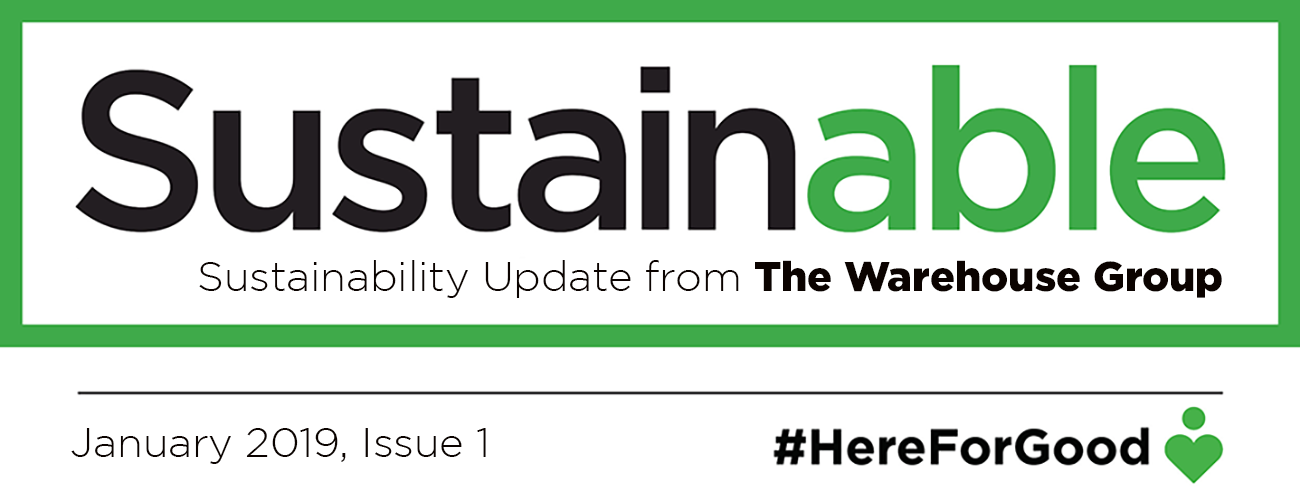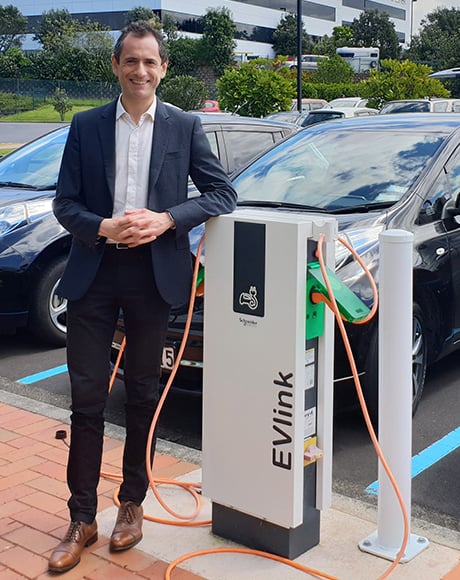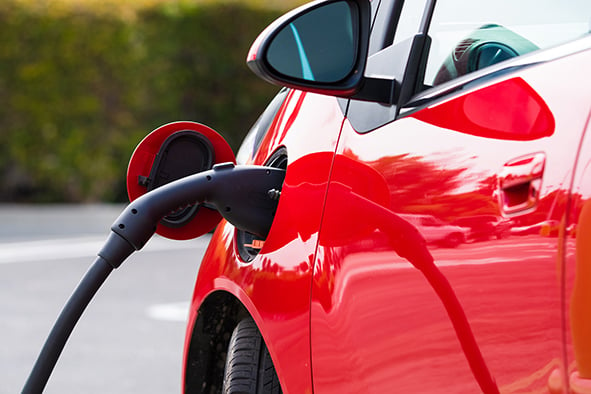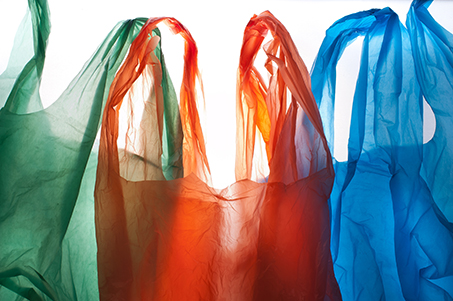
Be the change you want to see in the world
Surging ahead with electric vehicles
Ethical sourcing at The Warehouse
Recycling for good
Plastic bags update
CEMARS certification renewed

Be the change you want to see in the world
Kia ora, welcome to our first sustainability newsletter where we’ll share with you all the good we do here at The Warehouse Group.
When searching the term “sustainability” on Google, the top hits relate to its meaning and definition, so clearly people want to know what it means.
Sustainability is a big idea, an overarching concept, which recognizes the interdependence of people, planet and profit. In a world driven by economics, sustainability reframes value beyond financials.
If we look at the world leaders in sustainability, companies such as Patagonia, Ben & Jerry’s, and the Body Shop, they have all embarked on a journey that has delivered a close integration of the sustainability principles in everything from product design to sourcing and distribution, resources and people management, and their community investments. This pervasive integration of sustainability throughout the value chain has delivered continued business performance. More than a set of guiding principles, sustainability becomes an engine for growth.
And it’s not just corporations. Countries and governments are making sustainability their guiding principles. Between 1995 and 2015, the United Kingdom’s GDP grew by 15% GDP growth while reducing greenhouse gas emissions by 40% via a set of regulations rewarding innovation.
In New Zealand, our government has recently announced its focus on social wellbeing, child poverty reduction, inequality and climate change as performance indicators beyond economic growth. Sustainable Development Goals are becoming the norm. How encouraging!
The Warehouse Group has momentous opportunities ahead of us. As a purpose-driven organization, we focus on helping Kiwis live better every day, and we have already shown our capacity to think beyond the proverbial box. Look at our Red Shirts in the Community programme, which gives work skills to thousands of young people not in employment, education nor training, or consider our commitment to transfer 30% of our fleet to electric vehicles this year. These programs show the opportunities we can create when we take the lead the social and environmental issues that affect all of us in some capacity.
Our answer about the future of sustainability lies in that integrated lens. How do we manufacture and source ethically , how do we make an efficient use of natural and human resources, encourage a circular economy, and focus on key areas where our reach and scale deliver greater impact? These are complex, strategic questions with long-term implications and tremendous opportunities to create growth for our country, customers and organization. Together we can positively influence the world around us.
As a geographically isolated nation, New Zealanders celebrate diversity, ingenuity and resilience, all key qualities to achieve sustainable development. More than a third of Auckland’s population is born overseas - making the region more diverse than Sydney, Los Angeles, London and New York. We have the human resources, cultural awareness required to change the way we do things. As this nation’s largest listed general merchandise retailer, The Warehouse Group is certainly ready to drive forward the sustainability movement. Please join the journey.
David
Surging ahead with electric vehicles
 Transport is the leading source of greenhouse gas emissions growth in our country. if New Zealand wants to move to a low carbon economy and meet goals we committed to in the Paris Accord then, as its largest listed general merchandise retailer, we have an important role to play. This is why we're boosting our EV infrastructure and redesigning the entire model and economics of our transportation, both from the point of view of our customers and from a logistics and sourcing perspective.
Transport is the leading source of greenhouse gas emissions growth in our country. if New Zealand wants to move to a low carbon economy and meet goals we committed to in the Paris Accord then, as its largest listed general merchandise retailer, we have an important role to play. This is why we're boosting our EV infrastructure and redesigning the entire model and economics of our transportation, both from the point of view of our customers and from a logistics and sourcing perspective.
The shift to electric vehicles has been a significant trend globally. Recently major car manufacturers such as Volkswagen have announced plans to increase production of EVs, and phase out combustion engine models.
Electric cars emit significantly less greenhouse gases over their lifetimes than diesel and petrol engines, and will only improve as the technology develops. Electric vehicles also significantly reduce nitrous oxide and particulate emissions.
Twelve months ago, The Warehouse began rolling out public EV stations at 24 of our stores across the country, where EV owners can plug in and charge their vehicles while they shop. So far, we've supplied nearly 3500 EV charging sessions and the equivalent of over 117,400km worth of travel to EV owners. This is the equivalent of saving 22,000kg of CO2 and driving the length of the North Island more than a hundred times.
Over Christmas, we've saw a whopping 175 per cent increase of online searches from customers looking for our EV charging stations - so we know that the demand is there!
As part of our transition plan to boost our EV infrastructure, starting in early 2019 we'll be providing 30 team members at The Warehouse stores in Auckland, Wellington and Christchurch with Electric Vehicles. As our team members adapt to them, we'll learn how to optimise the EV charging customer experience, so that we can help our customers' make decisions and accelerate change.
As a Group, we are continuing to investigate EV delivery vehicles for all of our brands, and we're watching developments in electric commercial vehicles closely so that we can source vehicles with a suitable size and range for our business.
Here's a link to an interactive map of our stores nationwide with access to EV charging stations.
Ethical sourcing at The Warehouse
Stacey Morrison talks to Jade Turner, The Warehouse Creative Director, Homewares and Tania Benyon, CEO Group Sourcing Support about how products are designed then ethically sourced.
Read our Ethical Sourcing Report here
Recycling for good
We interview Joseph Youssef, National Director of social enterprise AllHeart about the strides they are making in diverting end-of-line products and equipment from
Plastic bags update

In August, we announced the phase out of single-use plastic bags across our four brands, The Warehouse, Warehouse Stationery, Noel Leeming and Torpedo7. They will be replaced by broad range of affordable, environmentally friendly plastic-free reusable bags.
This aligns with the announcement by the government in November that single-use plastic bags will be subject to a mandatory phase-out coming in force from July 1 2019, and our phase-out will align with these dates.
The mandatory ban covers single-use plastic shopping bags under 70 microns, with the exception of lightweight bags made of synthetic fabric that are designed for multiple use over a long life. Degradable plastic bags such as oxo-degradable, biodegradable and compostable are also being phased out.
The Warehouse introduced a charge for single-use plastic checkout bags back in 2009, with net proceeds given back to the local community. This reduced our plastic bag consumption by 70 percent. Since then, The Warehouse has donated close to $5 million to support kids’ sports teams, food banks, disability support services and many other grass roots community organisations.
The support will not stop with the end of single-use plastic checkout bags, instead we’ll introduce new ways for our customers to support their local communities when they visit our stores and announce details of that plan in the near future.
Types of bags being phased out:
35 microns or more, and less than 50 - These tend to be heavier weight single-use plastic shopping bags, including supermarket check-out bags, and light-weight boutique-style shopping bags. They are typically made from LDPE (low-density polyethylene) and in some cases may be labelled as ‘compostable’ and ‘degradable’.
50 microns or more and less than 70 - These tend to be boutique-style plastic shopping bags. They include the ‘emergency’ LDPE multi-use bags. They are typically made from LDPE (low-density polyethylene) and in some cases may be labelled as ‘compostable’ and ‘degradable.
Shopping bags not being phased out:

70 microns or more - Heavier weight reusable bags manufactured using a range of fabrics and composites. Reusable bags are typically measured by weight (grams per square metre), not thickness. They are multi-use and can be non-woven polypropylene, plain or coated.
CEMARS certification renewed

The Warehouse Group has been reporting its carbon emissions through the CEMARS certification programme since 2013.
Our highest sources of emissions are from Electricity and Sea Freight. In the past four years of reporting, we have reduced emissions by 9% which amounts to 2,594.69 tCO2e (tonnes of Carbon Dioxide equivalent).
To put the carbon reductions into context, they are comparable to:
- driving 12.4 million km in a medium sized petrol engine car;
- 469.05 return economy flights from Auckland to London;
- 961 times the average New Zealand household emissions per year;
- running the gas BBQ for 695,436 hours



